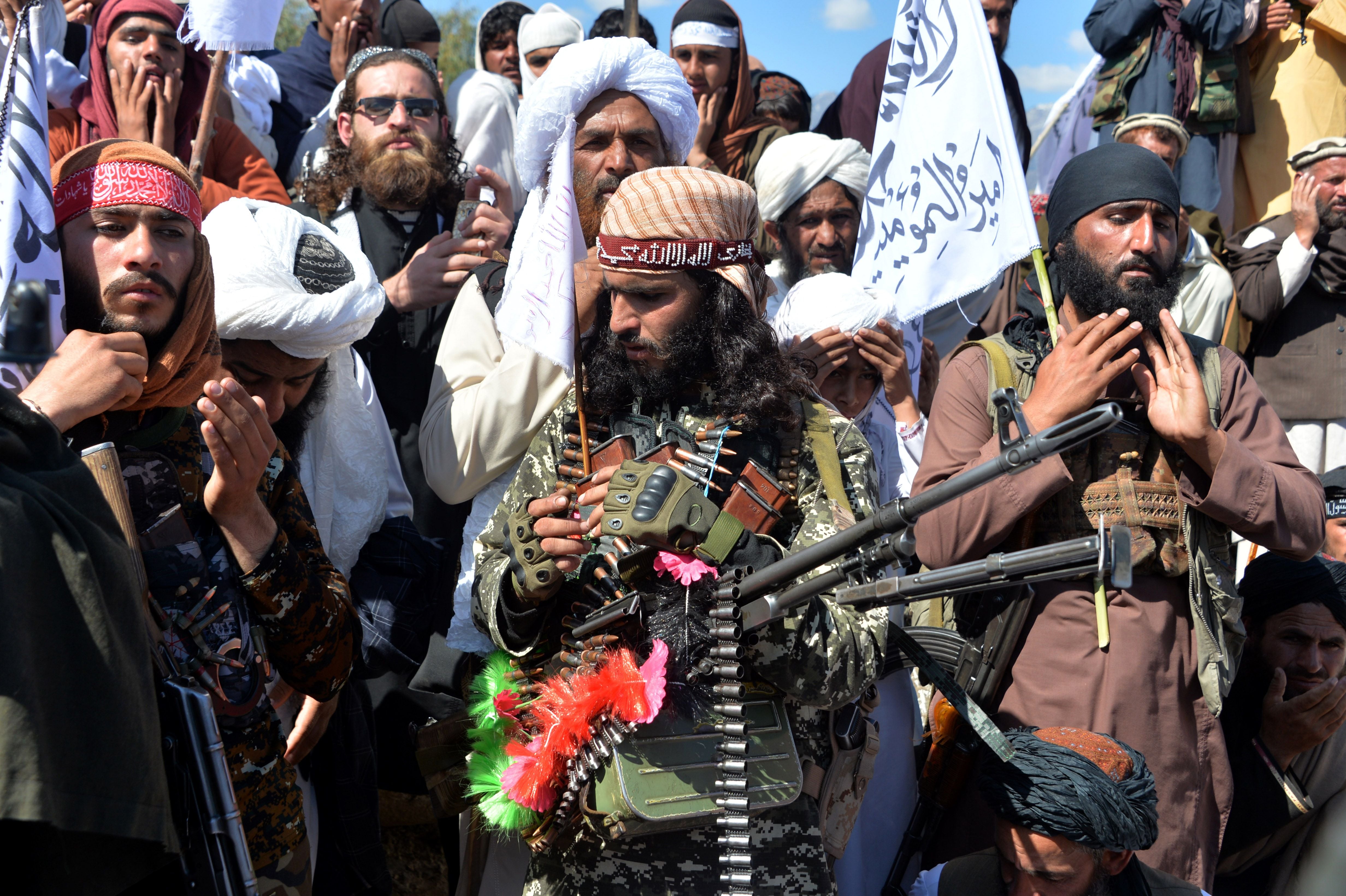U.S. Forces-Afghanistan conducted two airstrikes in 24 hours against the Taliban to disrupt coordinated attacks on ANDSF checkpoint, a spokesman said in a tweet.
They were the first airstrikes since the start of the Eid ceasefire, tweeted Army Col. Sonny Leggett, a USFOR-A spokesman.
“Overnight, USFOR-A conducted an airstrike against 25 armed TB fighters executing a coordinated attack on an #ANDSF checkpoint in Farah Prov,” Leggett tweeted. “This afternoon, USFOR-A conducted a strike on TB fighters attacking an ANDSF checkpoint in Kandahar Prov.”
In accordance with the U.S.-Taliban agreement “We reiterate: All sides must reduce violence to allow the peace process to take hold. These were the 1st US airstrikes against TB since the start of the Eid ceasefire,” Leggett tweeted.
Officials from U.S. Forces-Afghanistan, U.S. Central Command, Air Forces Central Command and the Pentagon did not immediately comment.
The attacks come as the U.S. is working to pull troops out of Afghanistan.
Though the Pentagon is reportedly preparing an Afghanistan withdrawal scenario that would see more than 8,000 troops brought back stateside by early November, Defense Secretary Mark Esper said May 27 that it’s only one option ― and not a particularly strong one.
The plan is still to bring troop levels down to 8,600 by July, Esper said, but any plan to pull out the remainder by the presidential election ― as cited in a Tuesday report by the New York Times ― does not seem likely at this point.
“It’s proven not to move as quickly as we’d prefer,” he said on a trip back from Marine Corps Recruit Depot Parris Island, South Carolina, when asked if it could be done in six months. “I don’t put a timeline on it. We have a timeline of May of next year but that timeline was premised on everything moving at a set pace.”
Following a surge of troops on the ground following his inauguration, President Donald Trump has made the Afghan withdrawal a centerpiece of his foreign policy.
At the same time, peace talks between the Afghan government and the Taliban have proceeded in fits and starts.
After a series of meetings in Qatar last year, Trump in September called off a secret meeting with Taliban leaders at Camp David, after they took responsibility for a Kabul suicide bombing that killed an 82nd Airborne Division soldier.
A cease-fire agreement reached between the Taliban and the Afghan government last week, which includes exchange of prisoners, has renewed some hope that the withdrawal of U.S. troops could ramp up.
"Right now we’re encouraged by the steps we see happening in Afghanistan,' Esper said. “We’re seeing a greater exchange of prisoners. It looks like the Afghan government is organizing itself in a way to sometime soon begin inter-Afghan negotiations. That’ll be a good step forward.”
At the time, Esper said, American troops are trying to uphold their end of the deal, including taking a break from any offensive attacks on Taliban fighters, because “our ambition is not to be the cause for that agreement breaking down,” he said.
Howard Altman is an award-winning editor and reporter who was previously the military reporter for the Tampa Bay Times and before that the Tampa Tribune, where he covered USCENTCOM, USSOCOM and SOF writ large among many other topics.
Meghann Myers is the Pentagon bureau chief at Military Times. She covers operations, policy, personnel, leadership and other issues affecting service members.




